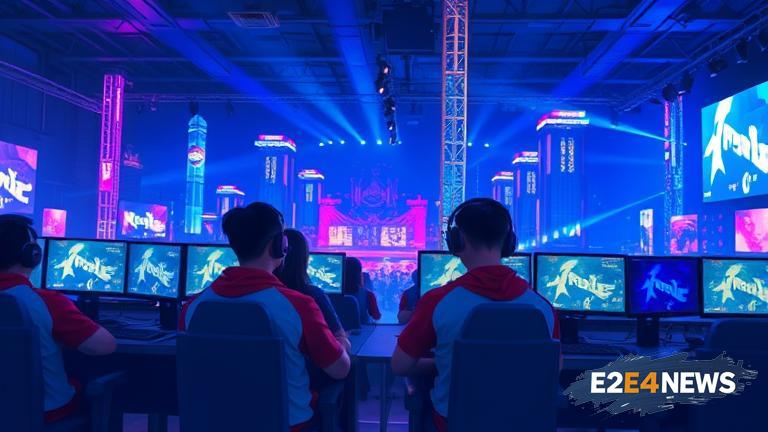South Korea’s esports industry has undergone significant development in recent years, transforming into a major player in the global gaming scene. The country’s strong IT infrastructure, high-speed internet, and tech-savvy population have created a fertile ground for esports to flourish. With the rise of popular games such as League of Legends, Overwatch, and PlayerUnknown’s Battlegrounds, the demand for competitive gaming has increased exponentially. As a result, South Korea has become a hub for international esports tournaments, with events like the League of Legends World Championship and the Overwatch World Cup drawing in massive audiences. The country is home to some of the most successful esports teams, including SK Telecom T1, Gen.G, and DAMWON Gaming, which have won numerous championships and accolades. The Korean government has also taken notice of the industry’s potential, providing support and funding for esports initiatives and infrastructure development. The establishment of the Korean Esports Association has further legitimized the industry, providing a framework for teams, players, and organizers to operate within. Moreover, the growth of esports has created new opportunities for employment, with careers ranging from professional players and coaches to commentators, analysts, and event staff. The industry has also attracted significant investment from major corporations, including telecom companies, banks, and consumer goods manufacturers. As the esports industry continues to expand, it is expected to have a positive impact on the country’s economy, with estimates suggesting that it could generate billions of dollars in revenue in the coming years. Furthermore, the popularity of esports has also led to the development of new technologies, such as virtual reality and augmented reality, which are being used to enhance the gaming experience. The country’s universities and educational institutions are also incorporating esports into their curricula, providing students with the skills and knowledge needed to succeed in the industry. In addition, the growth of esports has also led to an increase in tourism, with fans traveling from around the world to attend tournaments and events. The Korean esports scene has also become known for its unique culture, with fans and players alike embracing the competitive and social aspects of gaming. The industry has also been recognized for its potential to promote social good, with many organizations and teams using their platforms to raise awareness and funds for charitable causes. However, the industry is not without its challenges, with concerns over player burnout, match-fixing, and the impact of gaming on mental and physical health. Despite these challenges, the future of esports in South Korea looks bright, with the industry expected to continue growing and evolving in the coming years. As the country continues to invest in its esports infrastructure and talent, it is likely that South Korea will remain a major player in the global gaming scene. The industry’s growth has also led to an increase in collaboration between Korean and international teams, with many organizations partnering with foreign players and coaches to compete at the highest level. The Korean government has also announced plans to establish a dedicated esports stadium, which will provide a state-of-the-art facility for teams and players to train and compete. Overall, the esports industry in South Korea has come a long way in recent years, and its continued growth and development are expected to have a significant impact on the country’s economy, culture, and society.
